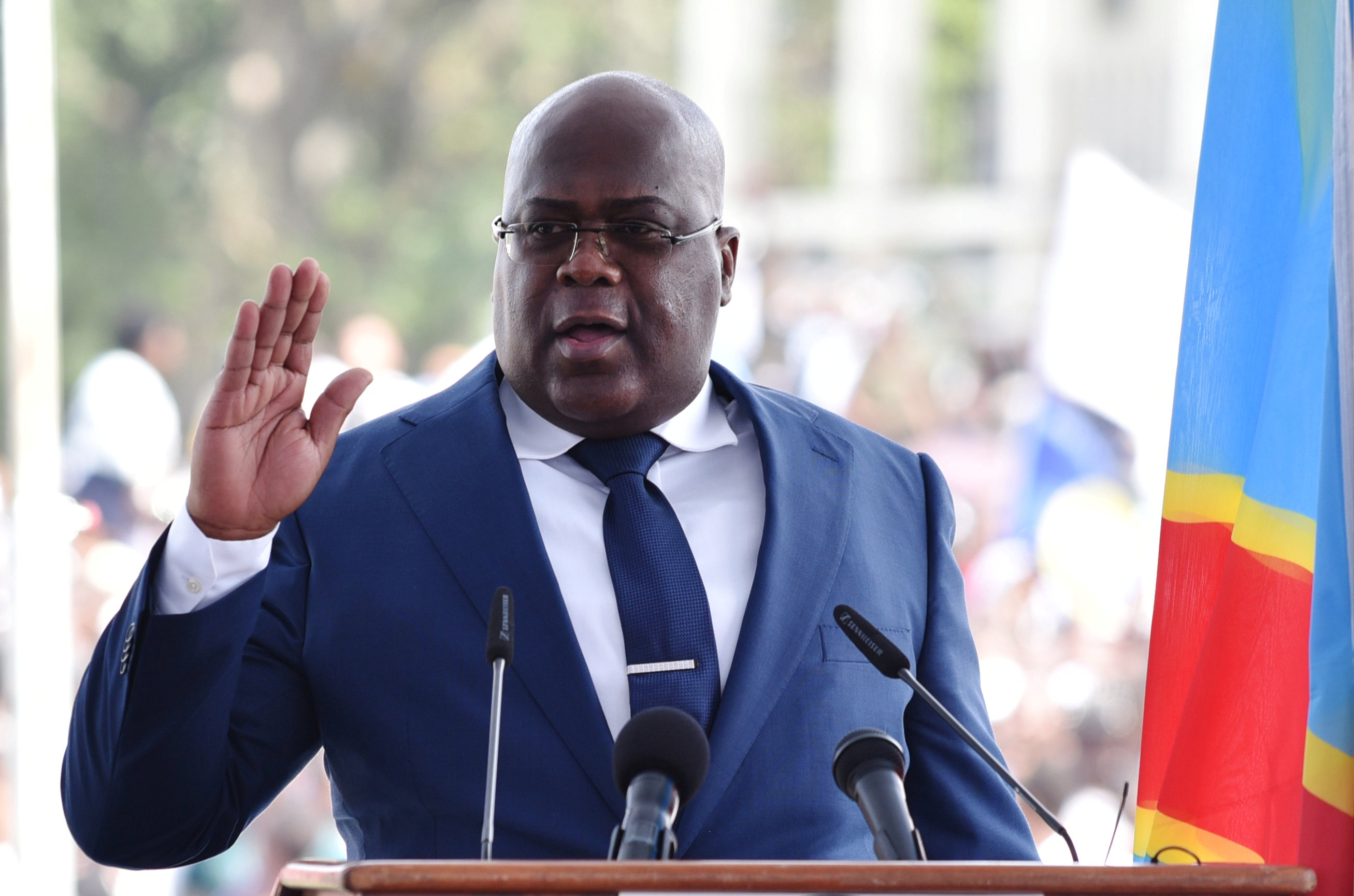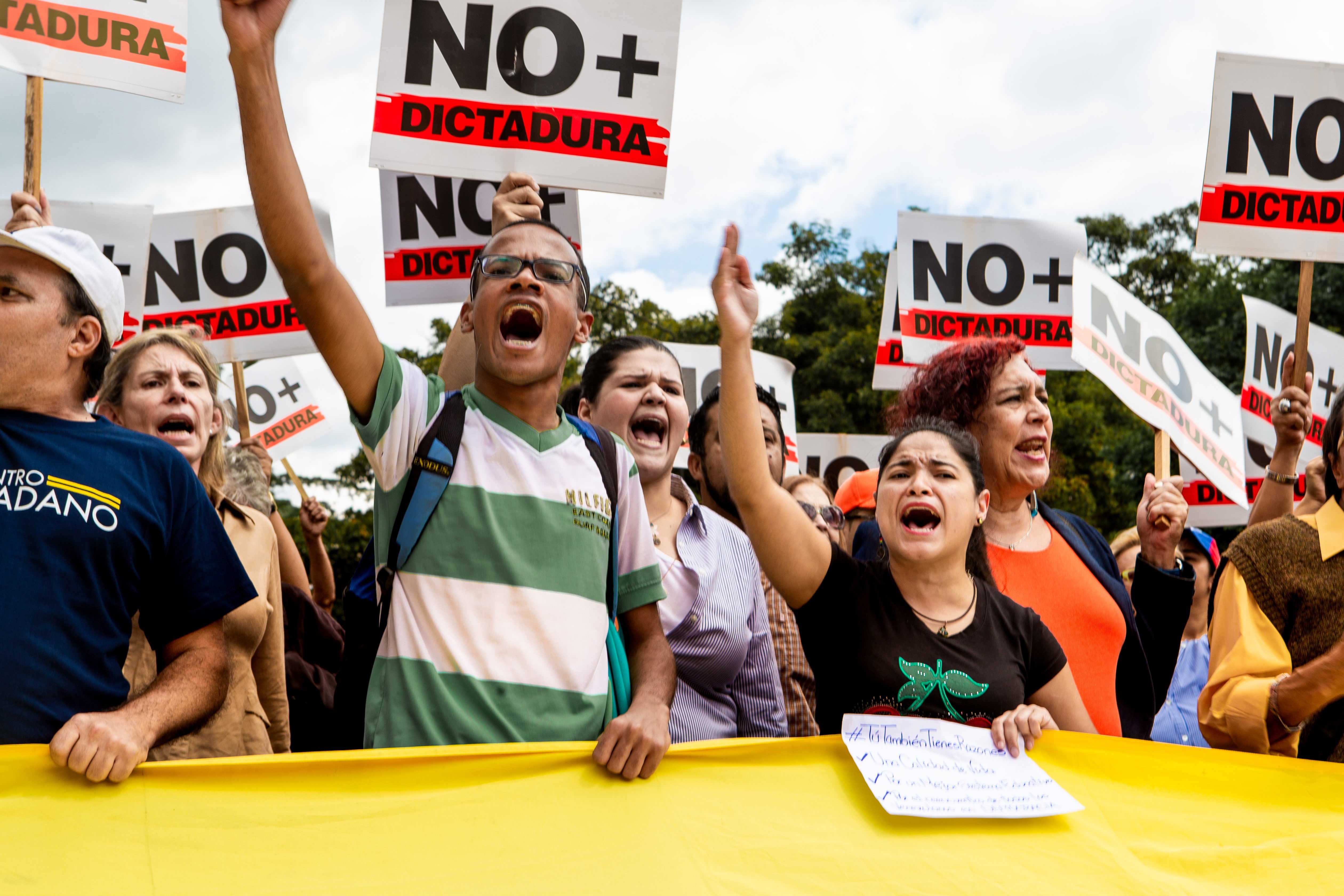The Archbishop Emiritus of Caracus said on Tuesday (29 January) that he hopes Venezuelan President Nicolas Maduro will step down from office, and in doing so heed the Pope’s call for peace.
Juan Guaidó, the elected head of Venezuela’s parliament, proclaimed himself interim president on 23 January, after President Maduro was re-elected last year during a controversial vote in which many opposition candidates were barred from running, or jailed.
“I hope Maduro, who always appeals to the pope's words, heeds those calls, and steps down from office since his administration has been absolutely harmful for the Venezuelan people,” Cardinal Jorge Liberato Urosa Savino, who retired as Archbishop of Caracas in July 2018, told Spanish Catholic news agency ACI Prensa on 29 January.
“We Venezuelan bishops always feel the constant support of the Holy Father in our position critical of the government,” the cardinal added.
Pope Francis told journalists on 27 January that he wants a "just and peaceful" solution to the crisis in Venezuela that respects human rights and avoids suffering. But he made clear it is not his role to take sides in the political crisis.
"If I were to enter and say 'Do this' to those countries, or to other countries, I would put myself in a role that I do not know. It would be a pastoral imprudence on my part and would do damage," he told reporters.
Francis said he was “fearful of a bloodbath” in the country, where more than 40 people are said to have died in protests against Maduro.
Cardinal Urosa told ACI Prensa that “the numerous messages of the Holy Father Francis regarding the socio-political conflict in Venezuela, and the message in Panama, are along the lines of promoting a peaceful solution and promoting the defence of human rights and avoiding the suffering of the people.”
“And we are grateful for that constant concern of Pope Francis. It seems a very good message to me,” he continued.
Cardinal Urosa said that the country’s bishop “for quite some time” had not had contact with the national government, most likely due to the critical stance they have taken of the government, who the Cardinal said has “ruined Venezuela”.
“We are open to those contacts, but since we maintain a position critical of a government that has ruined Venezuela, and has caused so much harm to so many people, they are not approaching us.”
The cardinal said that Venezuela’s bishops had already declared the country’s May 2018 elections as “illegitimate and false”. He also recalled the bishops statement on 9 January which declared that Maduro’s claim that he should continue to govern the country “was morally unacceptable after the resounding failure of his administration”.
Maduro, who has been President since 2013, is widely believed to have destroyed the country’s economy. Inflation is at one million per cent and basic goods are unaffordable.
The US, Canada, and several Latin American nations have recognised Guaidó as president.
The European Parliament voted on 31 January, in a non-binding resolution, to recognise Guaidó as interim president until fresh elections can be called. They have urged the European Union to follow suit.
Venezuela's Supreme Court has banned Guaido from leaving the country and frozen his bank accounts. In a speech given on 31 January, Guaidó said that his family has been threatened.
Earlier on Thursday Guaidó said that he had held "clandestine meetings with members of the armed forces and the security forces". Maduro is thought to still have the support of senior military figures.
Guaidó is calling on Venezuelans to gather together on Saturday as part of fresh protests to demand humanitarian assistance.



 Loading ...
Loading ...